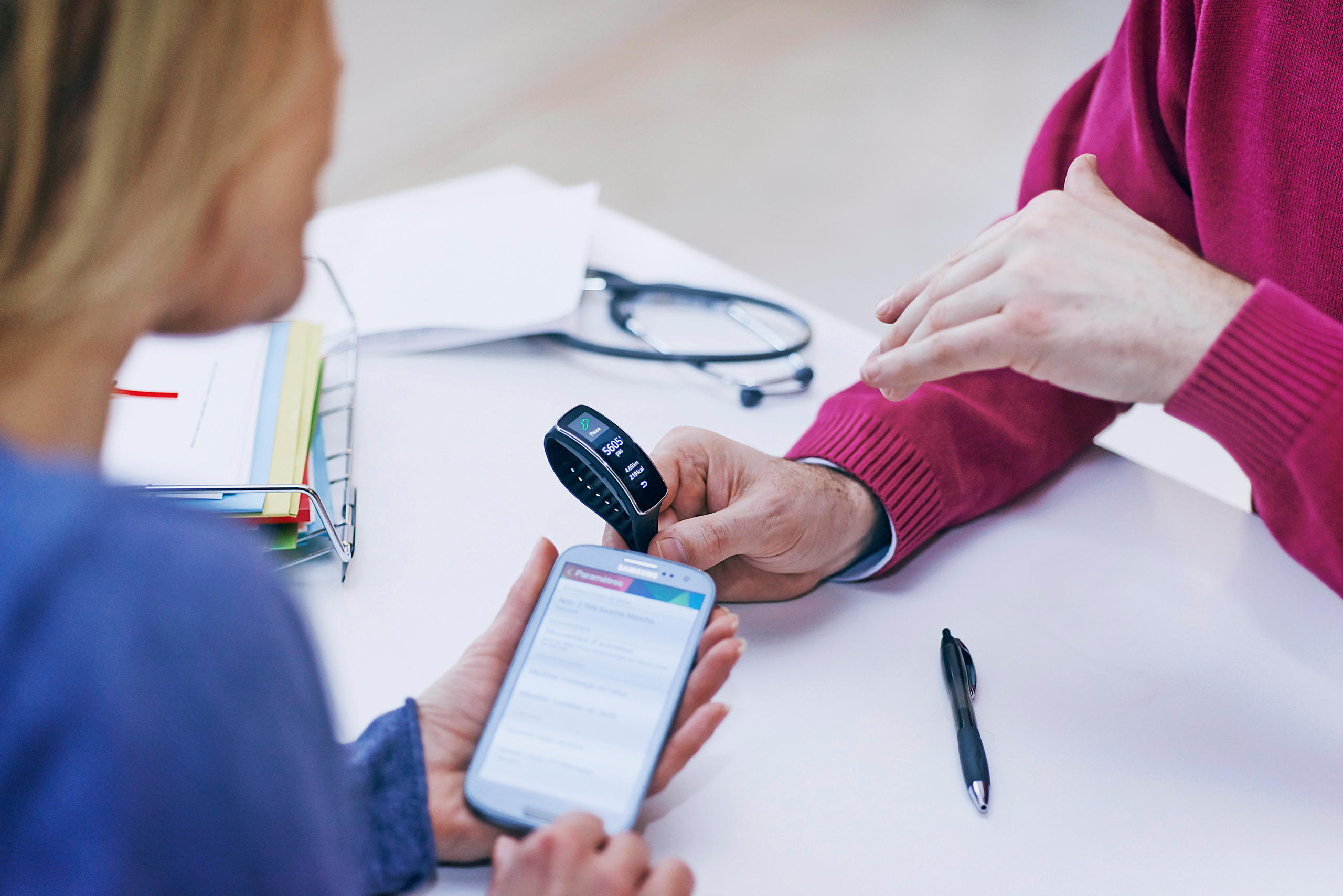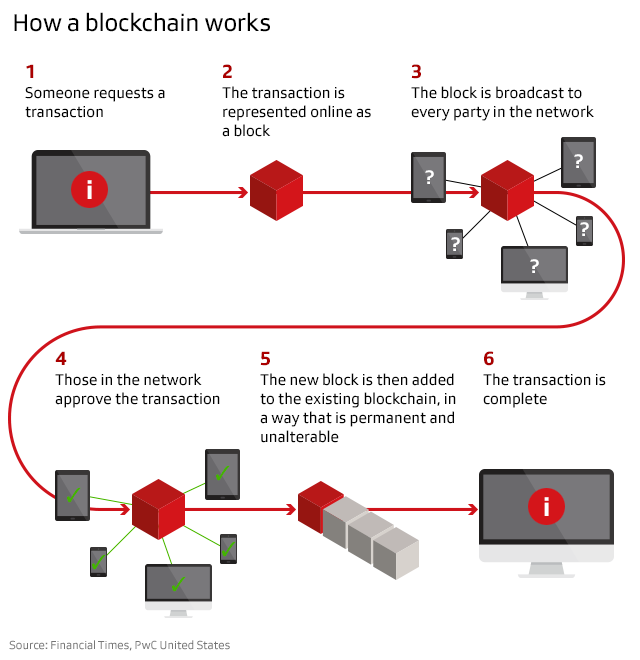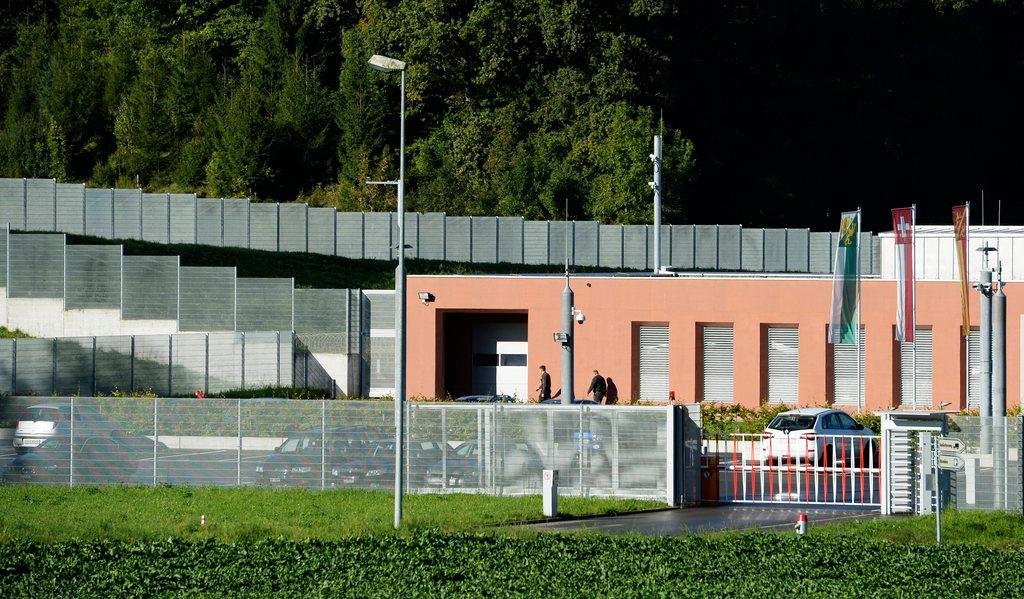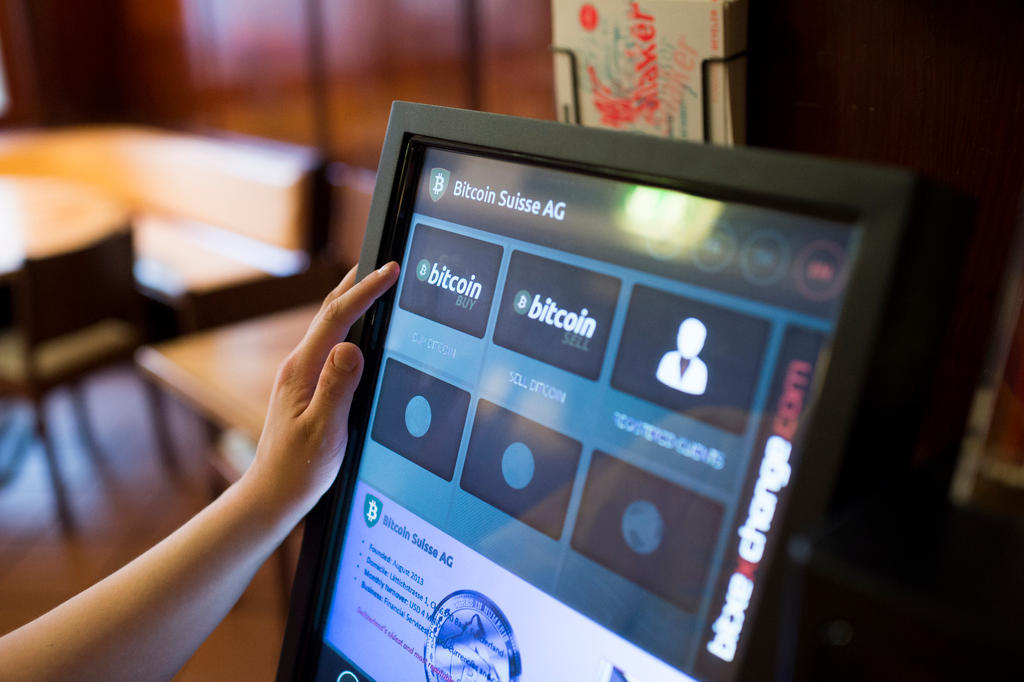How blockchain could soon affect everyday lives

Could 2017 be the year of blockchain, when the digital transaction system breaks free from computer geeks, bitcoin enthusiasts and academics to make an impact on ordinary households?
Blockchain is e-banking on a vast scale, minus the bank and other middlemen who take charge fees for making payments. It’s a digital scorecard of payments, contracts, property ownership, health records – in fact any data of economic value. It promises to put individuals in control of their own personal information and keep it safe from exploitation or fraud.
Here are five Swiss companies developing blockchain services that could have an impact on your daily lives sometime soon.
Health records
Everyone has medical records, and many people are adding personalised health information via wearables and apps that measure everything from your heart rate, blood sugar levels and how many steps you take each day. But how do you make this mountain of data work for you rather than companies who make a buck distributing it to advertisers and the health industry?
The ’world’s first citizen-owned medical data storage platform’, HealthbankExternal link, says it has the answer. The Healthbank cooperative allows people to store their data in a secure zone that only they can access. Users can later choose to make money from their data by connecting via the platform with medical research projects, online prescription services and other commercial ventures.
Healthbank currently runs on a centralised platform, but chief executive Reto Schegg sees great potential for rolling out the service on blockchain. Schegg is particularly excited about blockchain’s suitability for digital smart contracts should users wish, for example, to take out health insurance. It would also be conceivable to see a new digital currency aimed specifically at the health market in future, Schegg added.
Hence, Healthbank is actively exploring options to tap into blockchain – a system tailor made for such technological advances.
Legal contracts
Many companies and individuals are wasting money by asking expensive lawyers to draw up simple legal documents, according to Antoine Verdon. So he co-founded the LegalHubExternal link platform that offers the advice and tools that people need to draft their own contracts – at a reduced cost.
The service includes smart contracts, digital legal papers that are drawn up, stored and executed online. This is where blockchain comes in – not just for storage or distribution, but principally for security.
Each piece of data, including smart contracts, that is encoded and deposited on blockchain is also recorded on the ledger. If someone tampers with the contract, or ties to duplicate it without authorisation, the system will notice – and so will its users. This is why blockchain is so suitable for bitcoins. By recording the precise number of currency units that are added to the ledger, it becomes impossible to copy bitcoins without drawing attention.

Verdon believes it will soon be normal practice for people to draw up their own smart contracts when renting out an apartment. Likewise, it will also be possible for renters to automatically get back their deposits once they meet the terms of the contract on handover – all without the need for banks.
e-voting
On blockchain, votes can be ‘transacted’ just as easily as digital currencies, such a bitcoin. Each voter gets a digital identity, joins the network and registers their preferred option in an election or referendum. That vote is recorded and added to a chain of blocks in the system.
Voting can be performed on a smartphone or other device, making it easy to register votes at any time and at any place in the world – provided you have an authorised digital signature. So no more queuing for the ballot box at the local school with a slip of paper or showing up at the town square for a show of hands.
Swiss start-up ProcivisExternal link promises to provide an essential link in any future blockchain e-voting system. Procivis is a platform that checks and manages digital identities – a secure gateway that allows registered voters to enter the e-voting system whilst preventing fraud. As yet, Swiss e-voting is in its infancy and at a largely experimental phase.
Once the government establishes a nationwide eID system, Procivis founder Daniel Gasteiger believes his platform will be well placed to offer a wide variety of blockchain services, from e-voting to paying car parking fees without having to find the right change for a meter.
Logistics/inspection
The tamper-proof qualities of blockchain has also attracted the attention of start-up ModumExternal link, which together with the University of Zurich has designed a system to ensure the safe delivery of pharmaceutical drugs.
Medicaments often need to be transported under exacting temperature, humidity and light conditions to make sure they remain usable when they arrive at the doctor’s surgery. Modum’s sensors can constantly measure the temperature conditions on batches of drugs in transport.
There are many such sensory systems in the world, but Modum is using blockchain to tackle the related problem of how to store such data and make sure it gets to the right person at the right time. Under the present system, cargoes can pass through many hands, involving a lot of paperwork that can be tampered with, according to Modum’s Marc Degen.
Blockchain would indelibly record any alterations to data and identify more easily at which point a cargo got damaged, he said. It could also be used to automatically trigger smart contracts, such as due payments and insurance clauses to cover damaged goods.
Gaming
Geneva-based gaming company EverdreamSoftExternal link has established Project Orb, which stands for ‘ownership revolution of the blockchain’. Their blockchain gaming platform will provide players with a gaming wallet to exchange cards and BitCrystal tokens to be used in games such as Spells of Genesis – billed as “the first blockchain-based mobile game”.
Players have to trade or buy cards containing assets that will protect the Askian region on the world of Moonga from marauding monsters. Already launched as a soft version, Spells of Genesis will soon give players the opportunity of trading cards via blockchain.
EverdreamSoft says it is “pioneering ‘true ownership’ of digital assets” and a platform that will allow “more game studios to embrace blockchain technology and to enter a new age for the game industry”.

In compliance with the JTI standards
More: SWI swissinfo.ch certified by the Journalism Trust Initiative












You can find an overview of ongoing debates with our journalists here . Please join us!
If you want to start a conversation about a topic raised in this article or want to report factual errors, email us at english@swissinfo.ch.